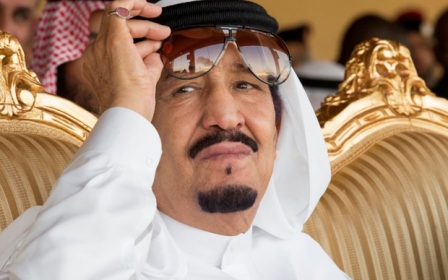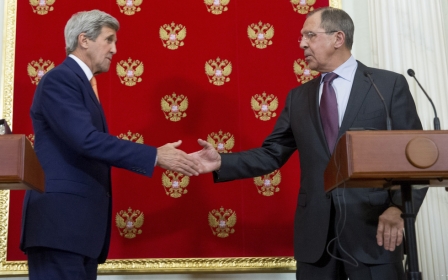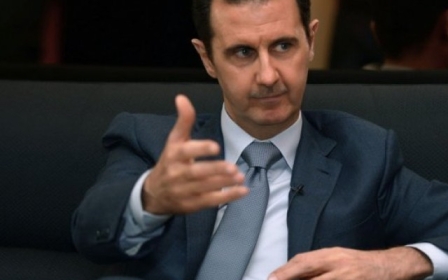Assad family used shadow companies to circumvent international sanctions

Syria’s government has been able to circumvent international sanctions and fund its war effort through shadow companies, according to leaked Panama Papers seen by French daily Le Monde.
The newspaper reported on Monday that three Syrian companies – Pangates International, Maxima Middle East Trading and Morgan Additives Manufacturing – used the services of Panama-based law firm Mossack Fonseca to create shadow companies in the Seychelles.
Le Monde, a partner in the year-long worldwide media investigation into 11.5 million documents leaked from the law firm said the shadow companies were “a way for the Syrian regime to circumvent international sanctions imposed since the start of the war".
The three firms are under US sanctions for allegedly providing petroleum supplies to President Bashar al-Assad’s government likely to be used by his military, including aviation fuel.
Since the start of Syria’s war in 2011, tens of thousands of people have been killed and thousands of homes destroyed in air raids and barrel bomb strikes.
Le Monde said the leaked documents show Mossack Fonseca continued to work with at least one of the companies, Pangates, until at least nine months after the sanctions were announced.
Pangates belongs to the Damascus-based Abdulkarim group, which is close to the Syrian government, Le Monde said.
The probe, coordinated by the International Consortium of Investigative Journalists, has exposed a tangle of financial dealings by global elites.
Assad’s billionaire cousin Rami Makhlouf - described in US diplomatic cables as the country's “poster boy for corruption” - who is facing sanctions, was also shown by the leaks as long having registered companies in tax havens.
Mossack Fonseca continued to work with Makhlouf after the beginning of the violence in Syria.
The documents show that a Mossack Fonseca compliance officer wrote in January 2011: “I believe if an individual is found on a sanction list then this is a serious red flag and we should make every effort to disassociate ourselves from them.”
However, no action was taken until September 2011.
The documents also reveal that the British bank HSBC successfully lobbied to keep Makhlouf's Swiss bank accounts open in the early days of the Syrian civil war.
Syria’s most notorious and powerful tycoon, Makhlouf founded shadow companies including Drex Technologies, which was registered in the British Virgin Islands in 2000. Mossack Fonseca did not become concerned about it until a decade later, Le Monde reported.
In 2011, the law firm cut ties with Makhlouf, just after the outbreak of protests calling for the ousting of Assad.
New MEE newsletter: Jerusalem Dispatch
Sign up to get the latest insights and analysis on Israel-Palestine, alongside Turkey Unpacked and other MEE newsletters
Middle East Eye delivers independent and unrivalled coverage and analysis of the Middle East, North Africa and beyond. To learn more about republishing this content and the associated fees, please fill out this form. More about MEE can be found here.




